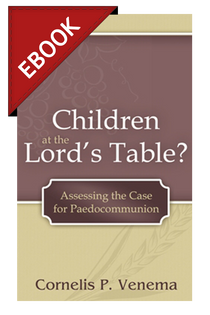Simpleton Luke
Puritan Board Freshman
My pastor has guided me through a few books on paedobaptism, and through reading them I noticed that household fellowship in the visible church is a big focus, which is why infants are baptized in as a sign of some sort of covenant. It was explained to me that since circumcision was performed on infants as a sign of membership within the nation of Israel, Baptism follows suit for infants (being within the household) as a sign of membership within the church.
Being raised credobaptist, I had no idea this existed outside of the Catholic/Orthodox groups, but I am making steps towards comprehending this tradition. I think I understand paedo arguments about the translation of circumcision to baptism and how we cannot withhold that means of grace from infants, but I am curious about paedocommunion. It seems weird to me that the church should force bread and wine on an infant, but I also understand that the Passover was celebrated by the entire household, and was explained to children when they were old enough to comprehend it. (Exodus 12:3-4, 24-27)
The permanence of both circumcision and Passover (to you and your descendants) carry over into baptism and the Lord's Supper, but why do we continue to baptize households, but we do not celebrate the Lord's supper in like manner? Why would we allow the means of grace from one sacrament to infants, but not the other?
Thanks.
Being raised credobaptist, I had no idea this existed outside of the Catholic/Orthodox groups, but I am making steps towards comprehending this tradition. I think I understand paedo arguments about the translation of circumcision to baptism and how we cannot withhold that means of grace from infants, but I am curious about paedocommunion. It seems weird to me that the church should force bread and wine on an infant, but I also understand that the Passover was celebrated by the entire household, and was explained to children when they were old enough to comprehend it. (Exodus 12:3-4, 24-27)
The permanence of both circumcision and Passover (to you and your descendants) carry over into baptism and the Lord's Supper, but why do we continue to baptize households, but we do not celebrate the Lord's supper in like manner? Why would we allow the means of grace from one sacrament to infants, but not the other?
Thanks.

